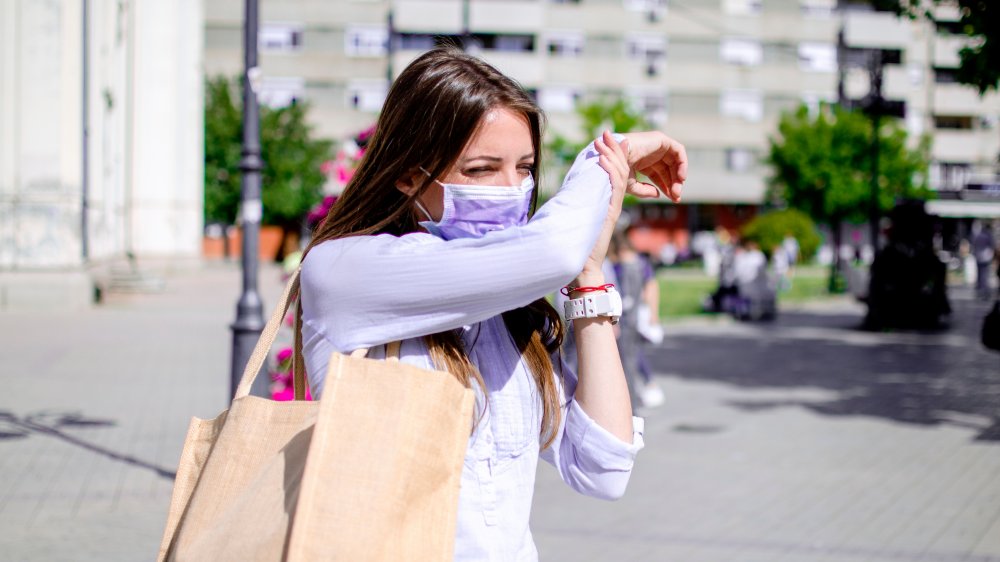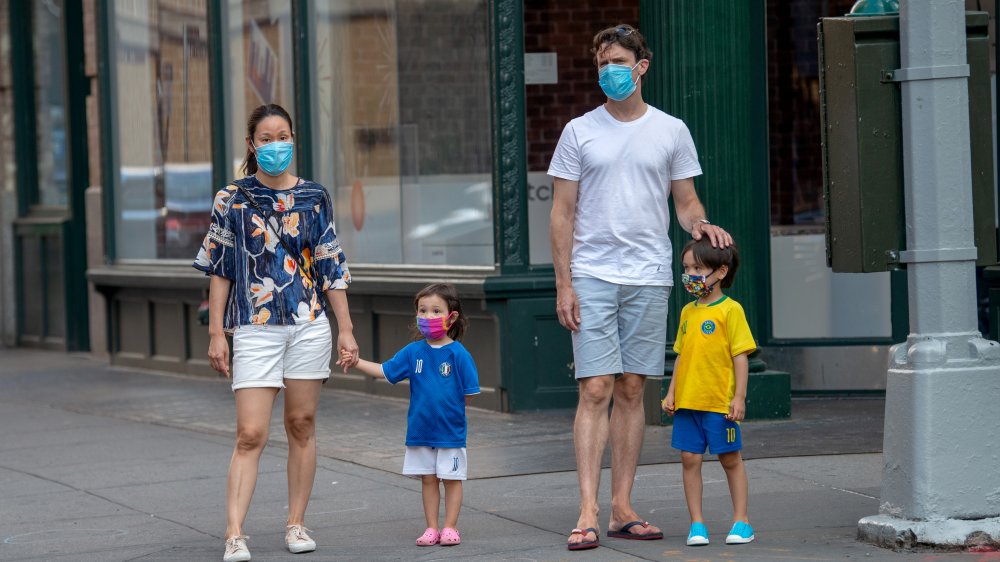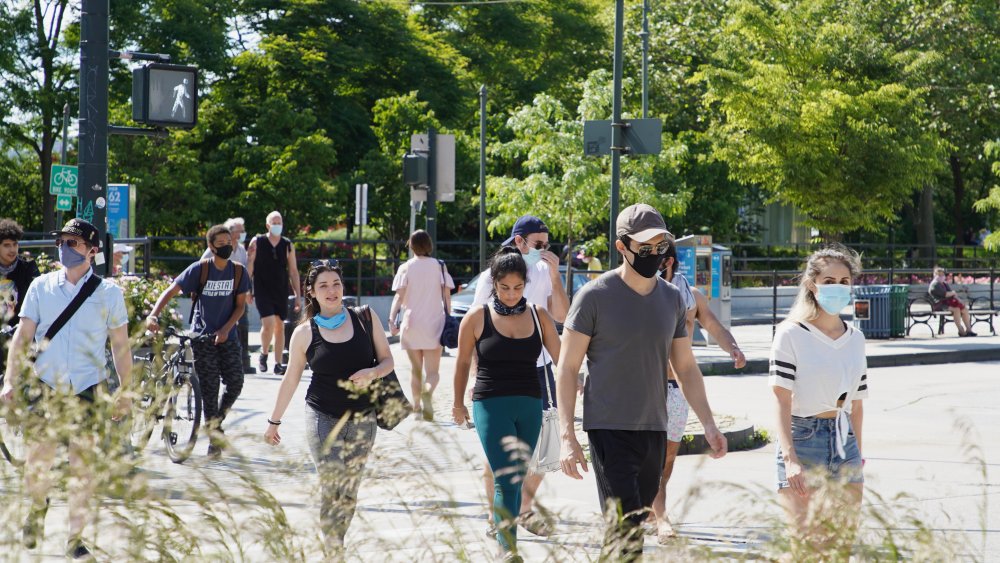The Reason Face Mask Guidelines Keep Changing
A lot has been going on in the news lately, making us want to tune out. We may even have gotten a bit lax about social distancing, and with summer nipping at our heels, we might have thought that masks weren't really needed. But with a new surge in cases in some states, the CDC has amended its face mask guidelines yet again to say that everyone should now wear a cloth face cover whenever they go out in public. The rule applies to everyone, except children under two, anyone who might have trouble breathing, and those who cannot remove the mask without help.
Guidelines on face masks have been inconsistent
If you've been following the CDC since the pandemic began, it's understandable to feel a little confused. In the past, the CDC hasn't been so fickle about giving firm recommendations about illnesses. But early in the pandemic, the CDC said face masks were not necessary unless you were ill. Then, in April, the CDC did an about-face and started asking people to wear cloth face masks (via CNN).
Doctors say the guidance keeps changing because scientists are still learning about Covid-19. What they do know is that the virus is very contagious. They know that the virus has a 14-day incubation period, which means the possibility of being contagious before symptoms show is very high. This means that the disease doesn't just spread through people who have coughs and sneezes; it also spreads through people who have no symptoms and who simply might be doing normal things like talking or breathing.
Wearing face masks helps stop the spread of Covid-19
If the rate of infection continues, the University of Washington estimates that 180,000 people will die of Covid-19 by October 1. But, as with all estimates, this one isn't set in stone. The university's Institute for Health Metrics and Evaluation (IHME) who did the study, says that if 95 percent of people wear masks in public, more than 30,000 deaths can be prevented. "People need to know that wearing masks can reduce transmission of the virus by as much as 50 percent, and those who refuse are putting their lives, their families, their friends, and their communities at risk," IHME Director Christopher Murray said.
Now, more than ever, it's important to understand exactly why the latest mask guideline is critical. "Wearing a mask helps prevent respiratory droplets from spreading as far as they otherwise would without a mask," said Dr. Lisa M. Lee, a public health expert specializing in infectious disease epidemiology and public health ethics at Virginia Tech (via Health). "If a person has a respiratory infection ... breathing, coughing, and sneezing can spew droplets that travel six to 14 feet away. Wearing a mask reduces the amount of space these droplets travel and will help prevent transmission."
Bottomline: If your health allows you to wear a mask, be sure to do so whenever you're out out about.


